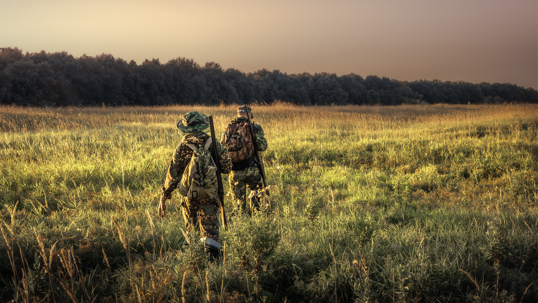

By: Brad Marsicek, Goosmann Law Omaha
Owning agricultural or undeveloped land in the United States comes with significant liability concerns. Landowners face the challenge of allowing non-owners to engage in agricultural or recreational activities, such as hunting, on their property without putting themselves at risk for damages caused by injuries. This blog explores the liability issues faced by landowners and offers strategies to mitigate these concerns and protect their assets.
Recreational Use Statutes
Recreational Use Statutes exist in every state in the US but vary in their approach. Kansas and Texas serve as extreme examples, highlighting the different cultural perspectives on hunting and recreational activities.
Kansas has a successful program called the Walk-In Hunting Area (WIHA), which allows landowners to lease their land to the state, providing public access for hunting and recreation. The Kansas Recreational Use Statute offers liability limitations for landowners who allow public access to their property for recreation, as long as no fee is charged.
In Texas, private land leased to individuals or outfitters is more common than public land. The Texas Recreational Use Statute provides liability protection to landowners who allow access for recreation, as long as the fee charged is within a certain limit. Texas also has an Agritourism Act that offers additional protections for landowners, requiring specific signage and documentation.
Liability Waivers
Liability waivers play a crucial role in protecting landowners from potential lawsuits. To ensure the enforceability of these waivers, it is important to make participants fully aware of the dangers and risks associated with the activities on the property. It’s important to consider working with an attorney who can understand the potential risks and counsel clients on the types of individuals who may access the property, including inexperienced visitors. Liability waivers should cover a broad range of potential dangers and require participants to answer safety-related questions.
Firearms
Hunting involves the use of firearms and archery equipment, which inherently carry risks. Landowners must establish minimum qualifications for individuals handling firearms on their property. Liability waivers should include safety-related questions regarding firearm handling and give guides or outfitters the authority to revoke privileges in case of dangerous behavior. Participants should be required to complete a state-approved hunter education and safety course.
Establish an LLC for Leasing
Establishing a separate Limited Liability Company (LLC) or Corporation to handle hunting lease liability is a recommended strategy. This legal structure provides an additional layer of protection, as long as the corporate veil is not pierced. Liability waivers, contracts, and leases should identify the specific LLC responsible for leasing and outfitting activities.
Hunting Structure Injuries
Falls from treestands and elevated hunting structures are a common cause of hunting-related injuries. Attorneys should advise landowners to eliminate hunting from any elevated structures. Homemade or DIY structures should be discouraged, and commercial tree stands should meet safety standards established by the Treestand Manufacturer’s Association. Additionally, proper construction and adherence to building codes are essential for elevated blind structures. Fall arrest systems should be mandatory for all elevated structures without solid walls.
In conclusion, liability concerns pose significant challenges for owners of agricultural or undeveloped land in the US. By understanding the state-specific Recreational Use Statutes, using well-drafted liability waivers, implementing safety measures, and considering LLC holding and management, landowners can mitigate liability risks and protect their assets. The Goosmann Law Firm specializes in providing comprehensive legal services for landowners, and can assist you in navigating the complexities of hunting lease liability and related legal matters. Your peace of mind and legal protection are just a phone call away. Call us today at 855-909-4442 to schedule a consultation.